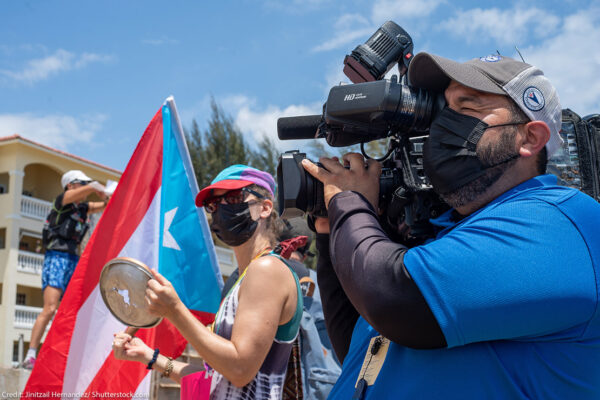ACLU Secures Free Speech Rights for State University Students in San Diego
FOR IMMEDIATE RELEASE
SAN DIEGO -- In a settlement announced today by the American Civil Liberties Union of San Diego & Imperial Counties, state university officials here agreed to rescind all disciplinary action against a student who refused to remove a political sign containing a vulgar four-letter word from the window of his dormitory room.
As part of the agreement, the university will revise its policies on student expression on campus. The University also agreed to correct every constitutional deficiency raised by the ACLU in a federal lawsuit filed last spring on behalf of student and National Merit Scholar Ben Shapiro.
"This agreement takes the university out of the business of censorship and restores free political expression for students," said Jordan Budd, Managing Attorney for the ACLU of San Diego and Imperial Counties.
"The unfettered exchange of ideas, including those that are provocative and controversial, is not only guaranteed by the Constitution, but is also essential to the mission of the University and to a free society," he added.
Shapiro had placed a hand-made sign reading "Fuck Netanyahu and Pinochet" in his window last November after reading in the London Times about former Israeli Prime Minister Benjamin Netanyahu's involvement with biological weapons research and the arrest of former Chilean dictator Augusto Pinochet for crimes against humanity.
Shapiro said he used provocative wording to get people's attention and to provoke debate on human rights and morality. After refusing to take the sign down, Shapiro was charged with violating University regulations on posting notices, which prohibit "offensive" materials and the use of "fighting words." He was ordered to perform three hours of community service as punishment for his alleged infractions.
In its lawsuit -- filed on the eve of the deadline for Shapiro to serve his "sentence" and after University administrators had ignored a letter bringing the matter to their attention for over a week -- the ACLU asserted that the University's policies violated First Amendment free speech protections by being vague and subjective, failing to treat all verbal harassment under the same standard, and giving University administrators unbridled authority to suppress political viewpoints or word choices they did not like.
The U.S. Supreme Court has ruled that university officials may not censor student political expression on the basis that, in their view, it exceeds the bounds of good taste, the ACLU said. The Court has also ruled that fighting words lose the protection of the First Amendment only when they are directed at an individual in a face-to-face confrontation in a way likely to incite immediate violent reaction. The ACLU argued that the application of a fighting words policy to a written political statement about two politicians who are thousands of miles away was not only unconstitutional, but absurd.
"It is reassuring to me that the principles of American freedom and justice that I am learning inside the classroom also apply to the world outside the classroom, including the UCSD campus," says Shapiro, who begins his second year at the University next month.
The settlement agreement filed with the court today requires the University to:
- Immediately rescind all disciplinary charges levied by the University against Shapiro and to expunge all references to the incident from his college record;
- Revise its policies regarding the posting of flyers, posters, and banners to prevent University administrators from censoring the content of those notices. The new policy will specifically state that the University may not restrict messages posted in dormitory windows;
- Clarify the meaning of its "fighting words" policy to make it clear that the policy may not be used to censor student political expression. The "fighting words" policy is designed to punish hate speech that intentionally harasses students to the point of substantially impairing their ability to participate in University activities or to use University facilities;
- Revise University materials regarding student discipline to clarify students' appeal rights; and distribute the new policies to students and administrators.
In addition, the University has agreed to review its University-wide policies for the purpose of implementing an improved harassment policy which does not threaten First Amendment rights, and also to consider revising its Student Conduct Code to include the right to challenge a disciplinary action based on legal or constitutional grounds.


